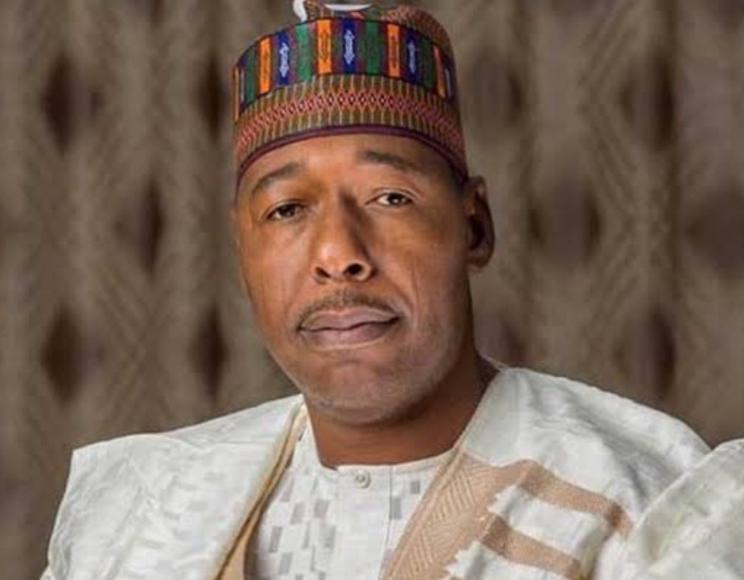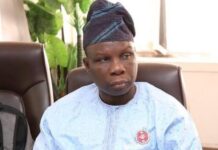The Arbiter
Anybody who chooses to write the truth about our dear country, Nigeria, does so with a heavy heart. You cannot write about your beloved with no degree of passion. The love for it, the sadness over its travails, the fear for its future, and the cry for its affairs to be done right cannot be written dispassionately. Bewildered and confused many a time, you just write for record purposes knowing that it may change nothing.
We have hope in our country; we all want it to be the greatest in the world. However, this hope is fading for some even as many still hold on to the dream of a greater Nigeria mainly because they have no other country to call their own.
We grew up with the national anthem, “Nigeria We Hail Thee”, which was adopted on October 1, 1960. It was our anthem until 1978. The anthem was written by Lillian Jean Williams, a Briton who lived here at the time of our independence, while the music for it was composed by Francis Berda. In the first stanza, there was a rallying exhortation. After saluting the great mother country – “Nigeria we hail thee”, it went on to call us to unity and oneness – “Though tribe and tongue may differ, in brotherhood we stand…”
A three-stanza anthem designed to whip up our patriotism, the third stanza struck a chord with me. In it, we supposedly beseech the Creator to help us build a nation where no man is left behind. “O God of creation, grant us this our one request, help us build a nation where no man is oppressed…” In my childish imagination in the early 70s (I was barely ten) I always romanticised that to mean we were imploring God to help us build a real wall of steel, mortar and cement strong enough to withstand external enemies and tall enough that no Nigerian can be thrown over it to the wolves.
Now, while the first national anthem spoke of Nigeria as a mother, the second spoke of it as a father. The last verse in the first stanza of the earlier anthem was “Nigerians all and proud to serve our sovereign motherland” while the second verse in the first stanza of the later anthem said, “To serve our fatherland”.
While the mother fiercely loves her brood and can stake her life for them, the father’s love is less sentimental but intense. Traditionally, he provides for both the mother and the kids and can break his back so that they can have something. He can move mountains to protect and preserve him. And so the child sees its father as stronger than Hercules, richer than Mansa Musa.
There may be many reasons why General Olusegun Obasanjo regime decided to change the anthem to the current one. Chief among them could be nationalism; after all, why should foreigners decide our national anthem, they might have reasoned. But did they put side-by-side the meanings, imports and differences between “motherhood” and “fatherhood” in their decision to adopt the current anthem? Perhaps they felt that likening Nigeria to a father will make its children revere and work to make it proud of them while in return gives them the love, support and protection only a father can?
You see, a citizen sees his country in the image of a father. Children begin to lose hope in a father who shirks his responsibilities. They begin to see him as the anonymous lover who, heartbroken, wrote: “I am afraid to love you again. But whenever I see you, I just want to hold you in my arms forever. You had promised to protect me forever and never to hurt me for once, but you have broken that promise, just the way you have shattered my heart, too.”
The yet-to-be-found Chibok girls and all their loved ones can say these words about their fatherland. All Nigerian children and their loved ones kidnapped or killed by Boko Haram in the North-East or its other arm, the bandits in the North West and North Central, can borrow these words too. Even those released after their people have paid their ransom can adopt these words. All Nigerians who believe more could have been done will be at home with these words. Do you think those appalled at how Boko Haram terrorists who were “rehabilitated” and released into society disappear will not see these words as apt?
In such a setting, the man who wants to play the role of the father may just be courting trouble from those who do not see any reason why the country should be a father. This is more so if they hold positions that can make them guide the country to play such a role but for pecuniary interests choose to act differently. My late father, may Allah (SWT) bless his soul, used to tell me that the best way to look for trouble is to speak the truth and confront liars.
And this is the fear many good Nigerians have for Professor Babagana Umara Zulum, the governor of Boko Haram-besieged Borno State. From the day he assumed the mantle of leadership, Zulum has not hidden his intention to return Borno to the path of peace, a way of life in the state that earned it the sobriquet, “Home of Peace”. While pursuing this peace, he also took it upon himself to be a father for his long-suffering people. His efforts deserve commendation and support yet commendations are scanty while the necessary support is in short supply from where it matters most.
Agreed, with the background of an academic trained to say things as they are, his modus operandi may not appeal to shakers and movers of our collective destiny. The establishment may even be aghast and asking itself “why is one of us behaving like one of them?”. Our political recruitment system may even be scratching its head as to how someone like him managed to scale the hurdles erected to stop his kind.
But Professor Zulum is not fighting the establishment; he wants a better life for his people. He would rather rally the establishment to bring relief to a beleaguered people. Boko Haram aims at tormenting the populace and putting fear in them. Zulum aims at giving hope to the people, providing for them and obliterating Boko Haram and their scourge. Surely he is not one they will be enamoured of. They will surely want him dead.
Twice Zulum was attacked and twice he escaped unscathed. The latest took place on Wednesday, July 29, 2020, at the entrance to Baga on his way from Monguno, home to over 500,000 IDPs from Baga, where he had gone to assess the condition of internally displaced people and how they can be returned to their homes. Baga is a commercial town known for its richness in fish. It is also strategically linked to the Chad Republic through Lake Chad.
At a point when the insurgents had control of about 20 local governments of Borno, the fish business was the fuel that kept their flame burning. They made millions of naira weekly, funds they used to recruit more foot soldiers, keep those with them happy and also procure weapons. That was before the army woke up to the realisation of that weak point.
They first stopped the fishing business, confiscated lorries and trailers laden with fish but the long term target was to take over the source. That was achieved. Then came the allegations. People started crying that the army had taken over the fish business, raking in the hundreds of millions that used to go to the displaced insurgents. The army, though, always debunked that insinuation.
Well, when Zulum was to enter Baga, heavy gunfire pierced the air and then shouts of “Boko Haram, Boko Haram” from the security forces around rent the air. The aura of calm clothing the governor’s convoy gave way to pandemonium. Even though nobody saw any of the so-called attackers, the army quickly bundled Zulum into an armoured personnel carrier (APC) and zoomed out of town with him, telling him he could not enter Baga. Conspiracy theorists think the army did not want the governor to discover a business he may truncate.
A viral video saw the governor confronting the Army Sector Commander who told him that there were no insurgents in Baga. The question then is, who fired the shots and to what end? Perish the thought that the army, being an institution of the state, will want to kill Zulum. Another question is, are there insurgents in Baga that the army has failed to dislodge but is ashamed to admit? Were they the ones that caused havoc to newly constructed public buildings in Tungushe, a suburb 25 kilometres outside Maiduguri on the way to Monguno, for instance?
If so, maybe Zulum’s idea to engage hunters remains the only option in this endless war. After all, there was a time the insurgents feared the Civilian Joint Task Force more than they feared the army. Besides, recent history has shown to us how the people of Iraq organised themselves to rout out ISIS from their territory.
Nonetheless, the Nigerian Army has said it would investigate the attack on Zulum. Fine. But will it? Some people may be sceptical considering that when the governor accosted soldiers allegedly collecting toll at Jimtilo checkpoint, there was a promise to investigate the infraction, but nobody has heard anything since then. Again, a state governor, Nyesom Wike of Rivers State had in May this year accused Major General Jamil Sarhem, GOC 6 Division of the Nigerian Army, of involvement in illegal oil bunkering in his state but we are yet to hear the report of the army’s investigation.
Many things in Nigeria bewilder and confuse, and in bewilderment and confusion, concerned Nigerians are asking, “Who wants Governor Zulum dead?”
Follow the Neptune Prime channel on WhatsApp:
Do you have breaking news, interview request, opinion, suggestion, or want your event covered? Email us at neptuneprime2233@gmail.com





